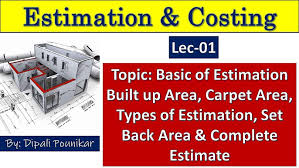
- Teacher: Peter Igesa
- Teacher: Odel Trainer
Moodle is an open-source Learning Management System (LMS) that provides educators with the tools and features to create and manage online courses. It allows educators to organize course materials, create quizzes and assignments, host discussion forums, and track student progress. Moodle is highly flexible and can be customized to meet the specific needs of different institutions and learning environments.
Moodle supports both synchronous and asynchronous learning environments, enabling educators to host live webinars, video conferences, and chat sessions, as well as providing a variety of tools that support self-paced learning, including videos, interactive quizzes, and discussion forums. The platform also integrates with other tools and systems, such as Google Apps and plagiarism detection software, to provide a seamless learning experience.
Moodle is widely used in educational institutions, including universities, K-12 schools, and corporate training programs. It is well-suited to online and blended learning environments and distance education programs. Additionally, Moodle's accessibility features make it a popular choice for learners with disabilities, ensuring that courses are inclusive and accessible to all learners.
The Moodle community is an active group of users, developers, and educators who contribute to the platform's development and improvement. The community provides support, resources, and documentation for users, as well as a forum for sharing ideas and best practices. Moodle releases regular updates and improvements, ensuring that the platform remains up-to-date with the latest technologies and best practices.
Links of interest:


This course provides a comprehensive understanding of the principles and practices of costing and estimation within the construction industry. Divided into two modules, the course explores fundamental concepts and advanced techniques crucial for effective project management.
Module 1: Fundamentals of Costing in Construction
This module introduces the essential elements of costing, including the differentiation between direct and indirect costs, and the significance of contingency budgeting. Students will learn how to allocate costs accurately, the importance of a well-structured cost framework, and the various methods of cost estimation, including top-down and bottom-up approaches. The module emphasizes the critical role of accurate costing in ensuring project profitability and financial planning.
Module 2: Advanced Estimation Techniques
Building on the fundamentals, this module delves into advanced estimation processes, including detailed estimates and bid preparation. Students will explore the integration of technology in estimation, such as Building Information Modeling (BIM) and estimating software, enhancing accuracy and efficiency. Additionally, the module addresses risk management in estimation, equipping students with strategies to identify, quantify, and mitigate potential cost-related risks.
Throughout the course, students engage in discussions and assignments that encourage practical application of the concepts learned. By the end of the course, participants will possess the skills to conduct thorough cost analyses, prepare accurate estimates, and implement effective cost management strategies, ultimately contributing to the successful execution of construction projects.

This course provides a comprehensive overview of fundamental mathematical concepts essential for academic success and practical applications in everyday life. Designed for students with varying levels of mathematical background, the course covers key areas including algebra, geometry, statistics, and calculus.
Course Objectives: